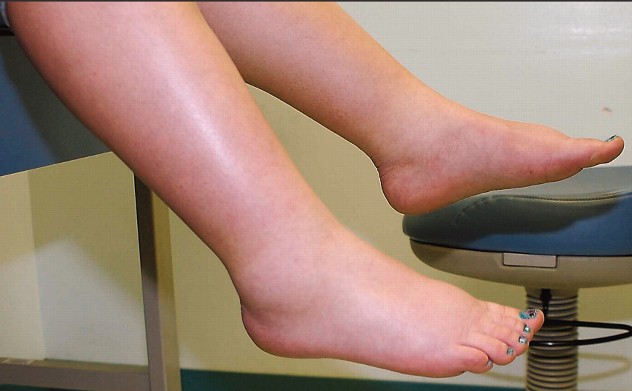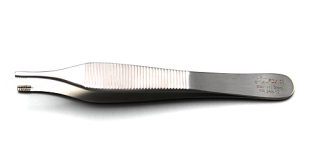Hypervolemia is a medical condition in which when your body starts to retain more water than it actually needs. This condition is also termed as fluid overload. In actual, your kidneys are not functioning properly since they can’t control the process of excess water and if this mechanism is disrupted it can cause the fluids to disperse into the tissues of your body.
In our body, amount of sodium is mainly responsible to regulate the balance of body’s fluids. When our body increases the amount of sodium it causes an increase in the body’s fluids. Sometimes sodium level in our body become disturb even when we have a normal sodium intake. Here one thing is clear that actually the intake of sodium is not problem but there are certain conditions that can cause your sodium levels to go too high and cause this medical condition.
Patients with Hypervolemia are more likely to have strained heart as it tries to pump out the excess fluid but it is unable to do it effectively. As a result these excess fluids start to remain in your body tissues. In a severe case the tissues of your lungs would be affected. So in other words, Hypervolemia may occur in instances where there is an elevation of intravascular volume levels. Reasons may be different such as shifts in fluids from the interstitium to plasma, reduced excretion of sodium and water, excessive intravenous fluids, and excessive retention of water and sodium from chronic renal stimuli attempting to conserve both.

Hypervolemia (Fluid Overload) Definition, Symptoms, Treatment
If you want to know more about this medical condition then continue to read. You will find all relevant information about this disease like what it is, what are its symptoms and available treatments for it.
Definition of Hypervolemia
As discussed above, it is a condition which occurs when your body starts to retain more water than needed. The most effected body parts in this conditions are arms, legs and your legs and ankles due to gravity that pulls the excess fluid downward. In this condition, mostly those parts are effected that have a lot of tissue in which to hold these excessive fluids.
Symptoms of Hypervolemia
Following are some common symptoms of this disease:
- Frothy sputum
- Moist cough
- Highly variable blood pressure
- Shortness of breath
- Slowed or increased heart rate
- Swollen abdomen
In addition to other , your weight itself can be a symptom. Weigh yourself daily to know if your body is retaining excessive fluids. If your weight increased by five or more pounds overnight it could be Hypervolemia. If you notice weight gains you should contact your physician for a diagnosis.
Causes of Hypervolemia
The main cause of Hypervolemia is a disruption in the water/salt balance in your body. The causes of Hypervolemia can be classified in to two groups namely long-term conditions or short-term temporary conditions.
Long-term conditions include
- Kidney disease can cause it as your kidneys may not be able to excrete the correct amount of fluids.
- Liver disease can also lead to this condition as liver and kidneys work together to excrete toxins from your body so in case of weak liver, excess fluid can build up in your abdomen.
- Heart disease can also be a reason like if your heart becomes too weak and is no longer able to pump the proper amounts of fluid through your body. Then the excess fluids start to settle in your extremities and many times your lungs.
Short-term temporary conditions include
- Intravenous fluids may be one temporary reason of excessive body fluids. Usually such fluids will need to be given to you at the rate that your heart can maintain fluid balance.
- Additionally the amount of Sodium Chloride which that fluid contain, also matters.
- Surgery or illness are also considered sometimes reasons of having excessive fluids in body.
Treatment for Hypervolemia
If you are diagnosed with Hypervolemia, then first thing that you should do is to reduce:
- Fluid intake, like if you are in the hospital, your physician may restrict your fluid intake or reduce the amount of IV fluids you get or if you are at home, then cut down the fluid intake.
- Sodium intake, a normal person is allowed to take two thousand milligrams of sodium each day but with hypervolemia it would be lower. Some foods like potato chips, bacon, cured lunch meat, sausage, canned vegetables and soup, pickles are simply rich in sodium. Cut them down from your diet.
- A water pill may also help your body to get rid of excess fluids. Eating foods that are high in potassium also helps like oranges, orange juice, bananas, strawberries, and baked potatoes with the skin.
- In order to reduce swallowing in your feet, ankles or legs, make sure that your sitting or sleeping position is in a way that they are elevated above the level of your heart to help prevent the pooling of excess fluids in these areas.
- In case of kidney disease, dialysis can help to pull out the excess fluid while in case of liver disease, a procedure is usually done to extract the excess fluid from your abdomen using a needle.
 Health & Care Information
Health & Care Information 

